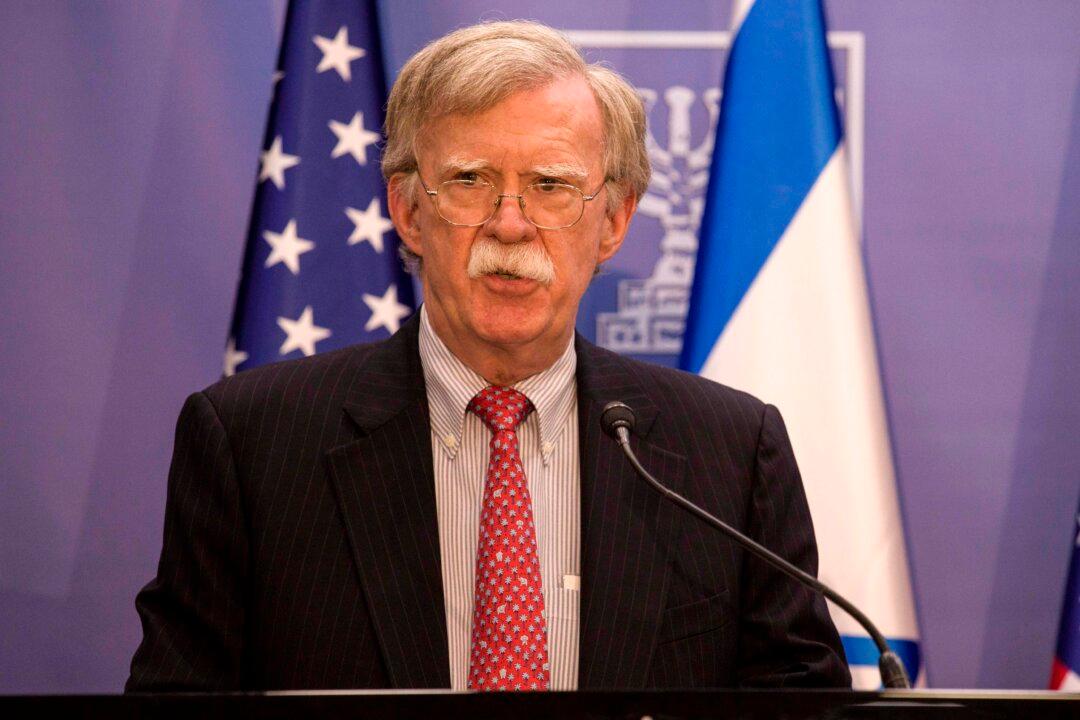National security adviser John Bolton told reporters on June 23 that Iran isn’t looking for peace with America, and warned the Islamic nation’s leaders not to mistake U.S. prudence for weakness as President Donald Trump prepares to add fresh sanctions.
“Neither Iran nor any other hostile actor should mistake U.S. prudence and discretion for weakness,“ Bolton said during a visit to Israel. ”No one has granted them a hunting license in the Middle East.”





